藏地画谈||杨云:悲情的诗人——六世达赖喇嘛仓央嘉措
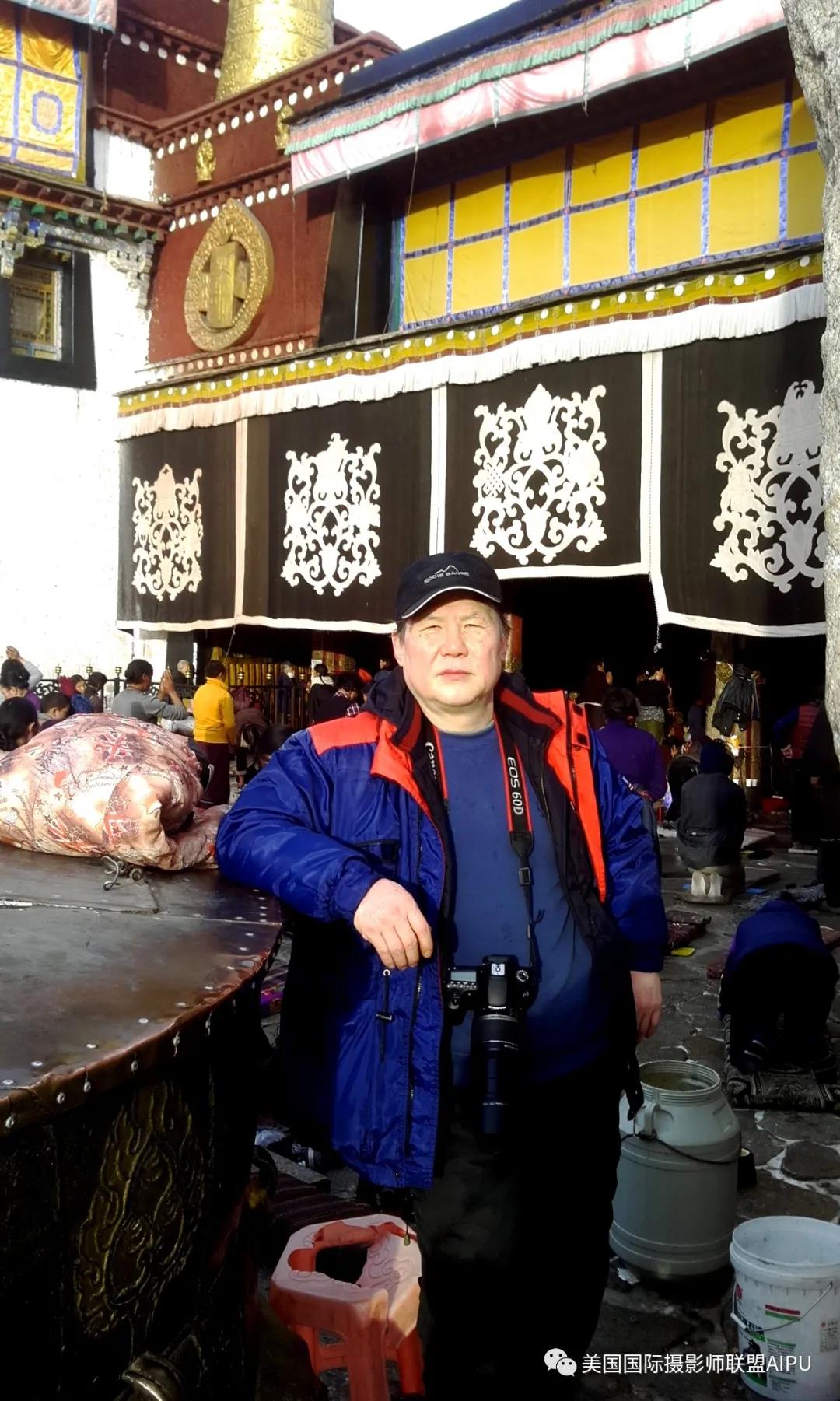
画家 杨云
Painter Yang Yun
呆在拉萨的日子里,常常独自一人踱步在“八廓”的街头,那是一桩最令人赏心悦目的事了。
In the days when I stayed in Lhasa, the most pleasing thing to do was walking alone on the streets of "Barkhor".
在这条繁华的八廓转经道上,每天川流不息的朝拜者来自天南地北。身着各式藏装,摇着转经筒的信众迎面而来,匆匆而过。无数鲜活的藏民形象令人目不暇接,整天都处在极度亢奋之中,不知不觉,一晃就是一天。
On this prosperous Barkhor transit road, worshippers come from all over the world every day. The believers, dressed in various Tibetan costumes, shook their prayer wheels and hurried past. The countless vivid images of Tibetans are dizzying, and they are in extreme excitement all day long. Unknowingly, a day passed.
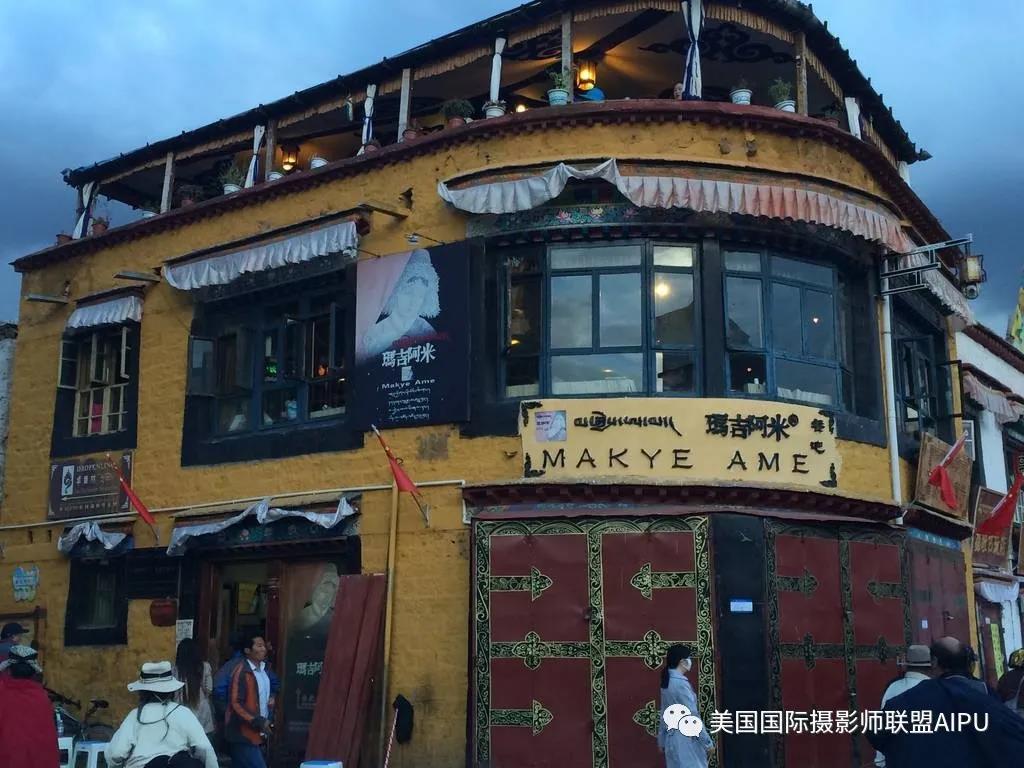
转自八廓街的东南角街头,从一幢两层楼高的黄色老旧藏式餐厅“玛吉阿米”飘出的奶茶,芳香四溢,我忍不住上得楼去,要一壶“甜茶”,临窗而坐,俯视窗外的八廓街道。呷一口氤氲升腾的奶茶,目送千姿百态的朝拜信众,那真是一种绝美的享受......
Turning from the southeast corner of Barkhor Street, the milk tea wafting from a two-story yellow Tibetan restaurant "Maji Ami" was so fragrant that I couldn't help but go upstairs. I asked for a pot of "Sweet Tea", sat by the window, and looked at the Barkhor Street outside the window. Taking a sip of the rising milk tea and watching the worshippers in various forms is really a beautiful enjoyment...
随手翻阅桌边的留言册,坐在雪域之王六世达赖喇嘛仓央嘉措与情人玛吉阿米的幽会之地,悠悠三百多年前的一段凄美的爱情往事浮现在眼前:“住在布达拉宫我是雪域最大的王,走在拉萨的街道,我是世间最美的情郎”,仓央嘉措的诗道出了他与情人玛吉阿米一段爱情传说。
Sitting in the rendezvous place of the sixth king of the Snow Land Dalai Lama Tsangyang Gyatso and his lover, a poignant and beautiful love more than three hundred years ago emerged in front of me: "I live in the Potala Palace and I am the biggest king in Snow Land. Walking in the streets of Lhasa, I am the most beautiful lover in the world." Tsangyang Gyatso's poem tells a legend of his love.
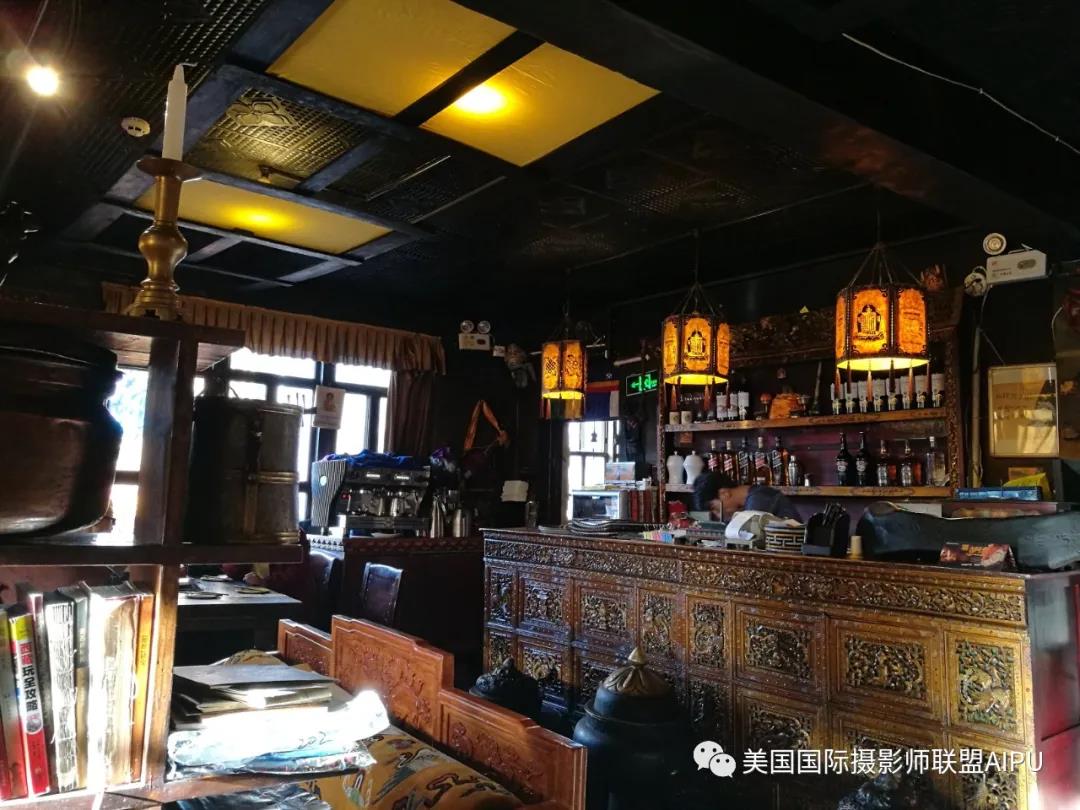
公元1682年五世达赖圆寂,亲信桑结巴措主持卫藏行政事务,他密不发丧,称五世达赖无限期修行,拒见任何人,也不向远在北京的康熙帝奏报。同时暗地在民间寻找转世灵童,藏南农奴之子仓央嘉措抓取了前世达赖遗物被选中为灵童。但此意图并未告知仓央嘉措父母及世人。一六九六年康熙帝得知五世达赖早死多年,龙颜大怒,桑结巴措立即自藏南迎仓央嘉措赴拉萨。途经浪子卡县时,拜五世班禅罗桑益喜为师,剃发受沙弥戒,同年在布达拉宫行坐床典礼成为六世达赖喇嘛。此时西藏政局动荡桑结巴措与拉藏汗矛盾加剧,向拉藏汗投毒未遂,双方开战,藏军战败。桑结巴措被处死。同时拉藏汗奏报康熙帝桑结巴措谋反,六世达赖仓央嘉措不守清规,请于“废立”获准。年仅23岁的仓央嘉措被康熙下令押送北京,途至青海湖滨染病去世,赋之天葬。
In 1682 AD, the Fifth Dalai Lama passed away but his confidant did not report to the public and lied that Dalai Lama was in an indefinite practicing period so he will not meet with anyone. This was also reported to Emperor Kangxi far in Beijing. While the lie was spreading, the confidant secretly searched for the reincarnation of the Dalai Lama. The son of a southern Tibetan farm Tsangyang of picked the previous Dalai Lama's relic and was named to be the reincarnation, but this intention was not informed to the parents nor the world. In 1696, Kangxi finally found out about the death of the Fifth Dalai Lama, for this he was very angry so the confidant immediately welcomed Tsangyang to Llasa and finished the ceremony to be the Sixth Dalai Lama. At this time, conflict in Tibetan politics gradually intensified, the confidant was killed and was blamed to be a rebel to Kangxi. Tsangyang did not follow rules on sexual desire thus the request for dethronement was approved. Under the order of Kangxi, the 23-year-old Tsangyang was escorted to Beijing. On their way, he was infected with a disease at Qinghai and died. His body was celestially buried.
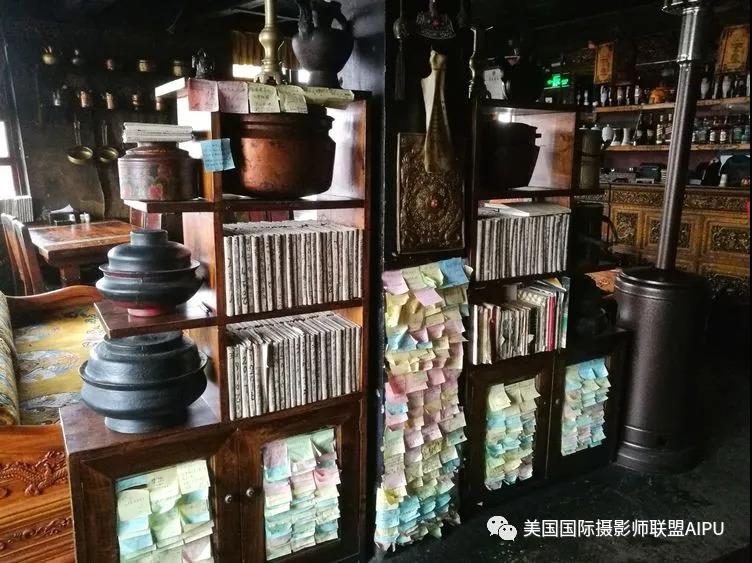
仓央嘉措被选中灵童后的13年里,仍在家乡生活,笃行红教的农奴家庭出生的他,热爱生活,崇尚自由,具有独立的思想意志,不为教规所束,在家乡就有了青梅竹马的恋人,是一位敢爱敢恨的青年。
Tsangyang lived in his hometown 13 years after he was chosen to be the reincarnation of the Dalai Lama. Born in a family of serfs, he loved life, pursue freedom, had independent thinkings, and was not bounded by religious rules. He had a childhood sweetheart and was a young man who dares to love and hate.
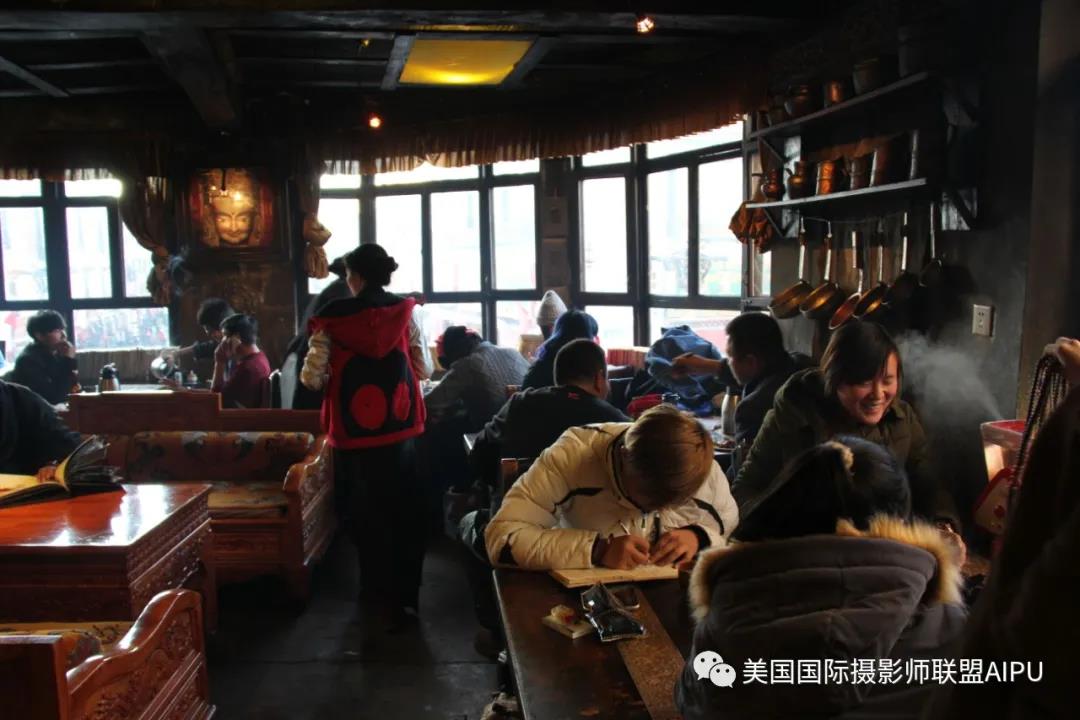
然而,坐床后的仓央嘉虽获达赖喇嘛之名,却有名无权,政治上受人摆布,实为傀儡,他内心十分痛苦。出于对自由与爱情的渴望,常常化名达桑旺波的贵族子弟,浪迹于拉萨的闹市。如今的这幢被命名为玛吉阿米的黄色房子,便是三百多年前与所爱之人玛吉阿米幽会之地......
However, although Tsangyang was in position, he did not have real power. In politics, he was definitely a puppet, for that, he was miserable. Because of his desire for love and freedom, he usually pretends to be a descendant of aristocrats and wander in prosperous markets. This yellow house was exactly his secret place with his lover three hundred years ago. (The building was named after his lover)
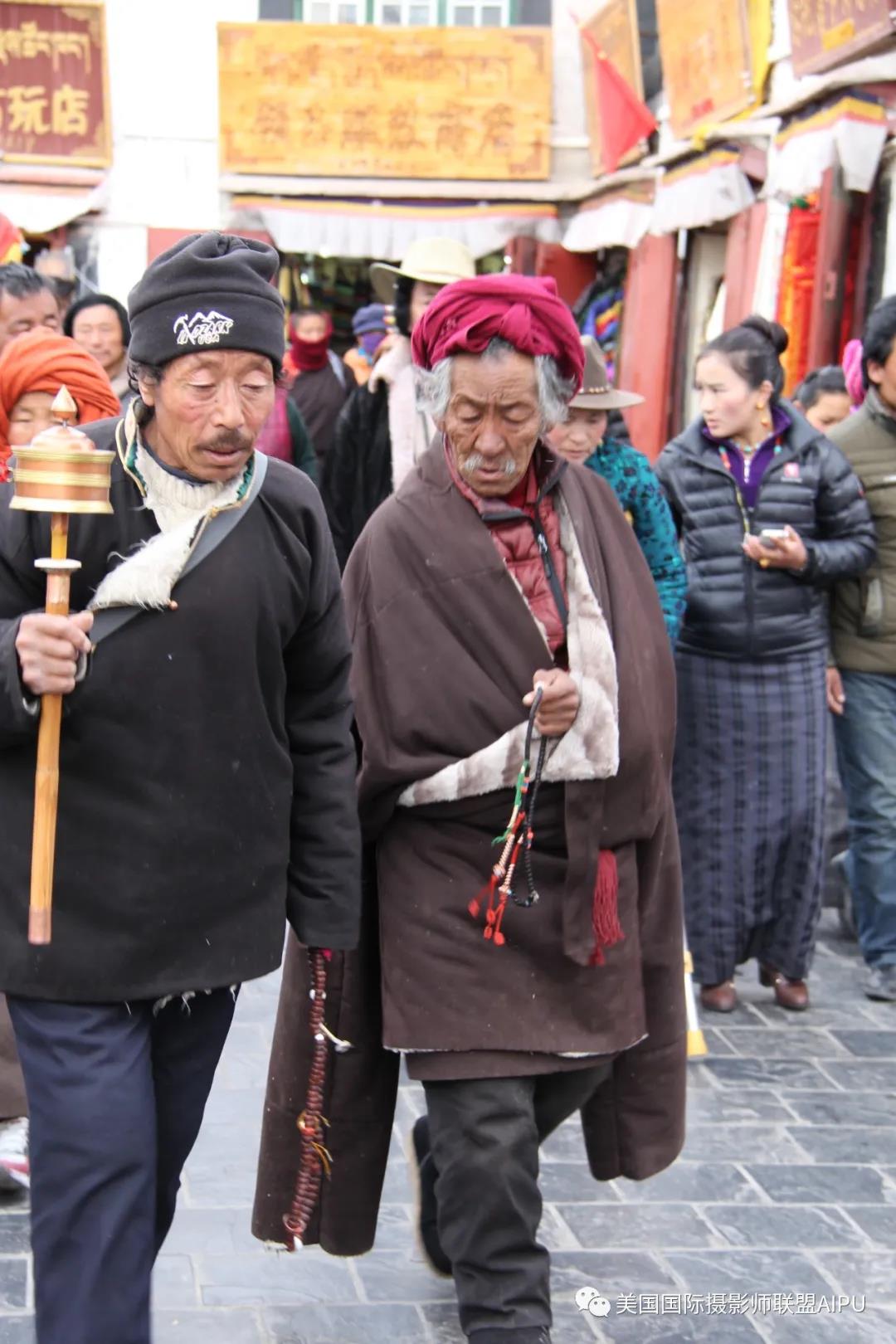
回眸一笑嫣然娇, 断魂飘摇上碧霄。愿与卿卿两相欢, 不发毒誓不肯饶。
Men: The smile when you look back is charming as if my soul flies to heaven.
Women: I am willing to be with you, if under the poisonous oath. (A poem by Tsangyang Gyatso)
年轻的仓央嘉措所追求的不是雪域之王的荣耀,也不是万人膜拜的活佛至尊。他亲近人间烟火,至爱尘世的欢乐。
The young Tsangyang did not pursue the honor of the King of Snow Land, nor was he looking to be the well-respected living Buddha. He was close to common people and loved the happiness of ordinary life.
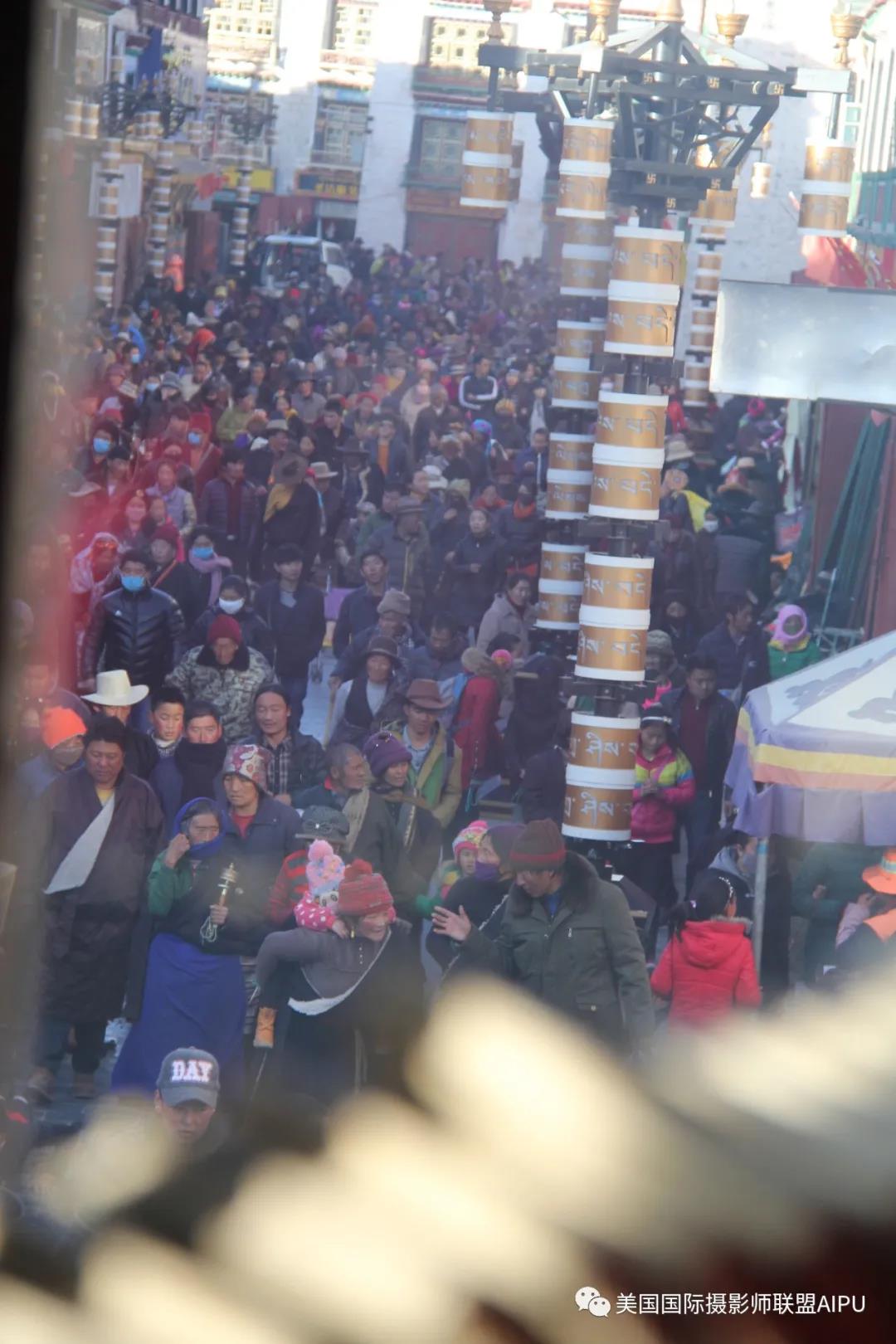
曾虑多情损梵行,入山又恐别倾城,世间安得两全法,不负如来不负卿
I once worried that love will obstruct my Buddhist path, but I am reluctant to leave her. How could the world have a perfect solution to satisfy both, that lives up to Buddha and lives up to my love. (A poem by Tsangyang Gyatso)
仓央嘉措与生俱来的反叛和追求真爱的天性,注定了它短暂一生的悲情。在他的多达七十余首的“情诗”中表达了他对情爱坚贞的向往,他是一位真实的凡人,一位可爱可亲的佛僧,更是一位世界诗歌史上不朽的藏族诗人!
Tsangyang's rebellious nature and pursuit of true love doomed the tragedy of his short life. In more than 70 love poems that he wrote, Tsangyang expressed his yearning for love and loyalty. He was an ordinary man, a lovely Buddhist monk, and an immortal Tibetan poet!
杨云作品 Yang Yun's Works
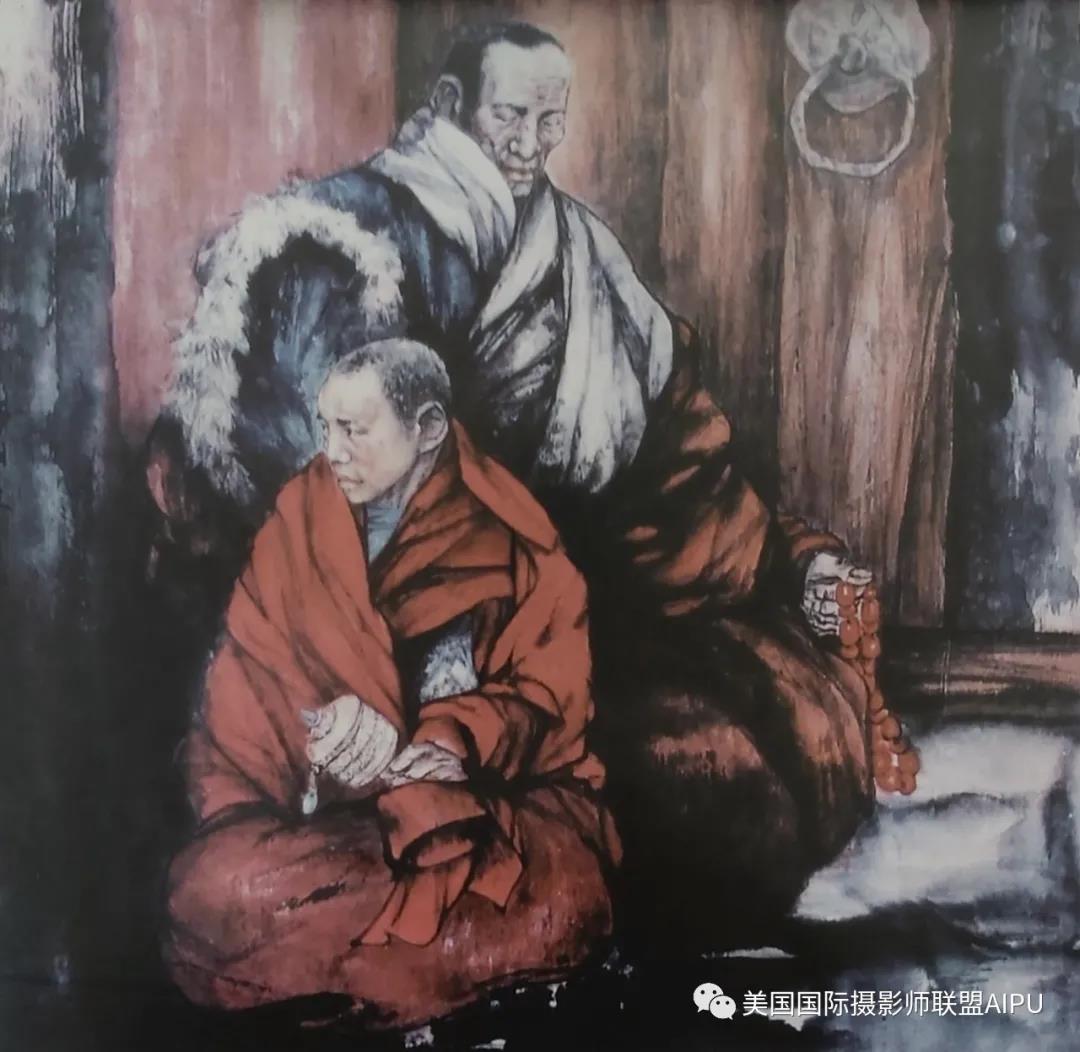
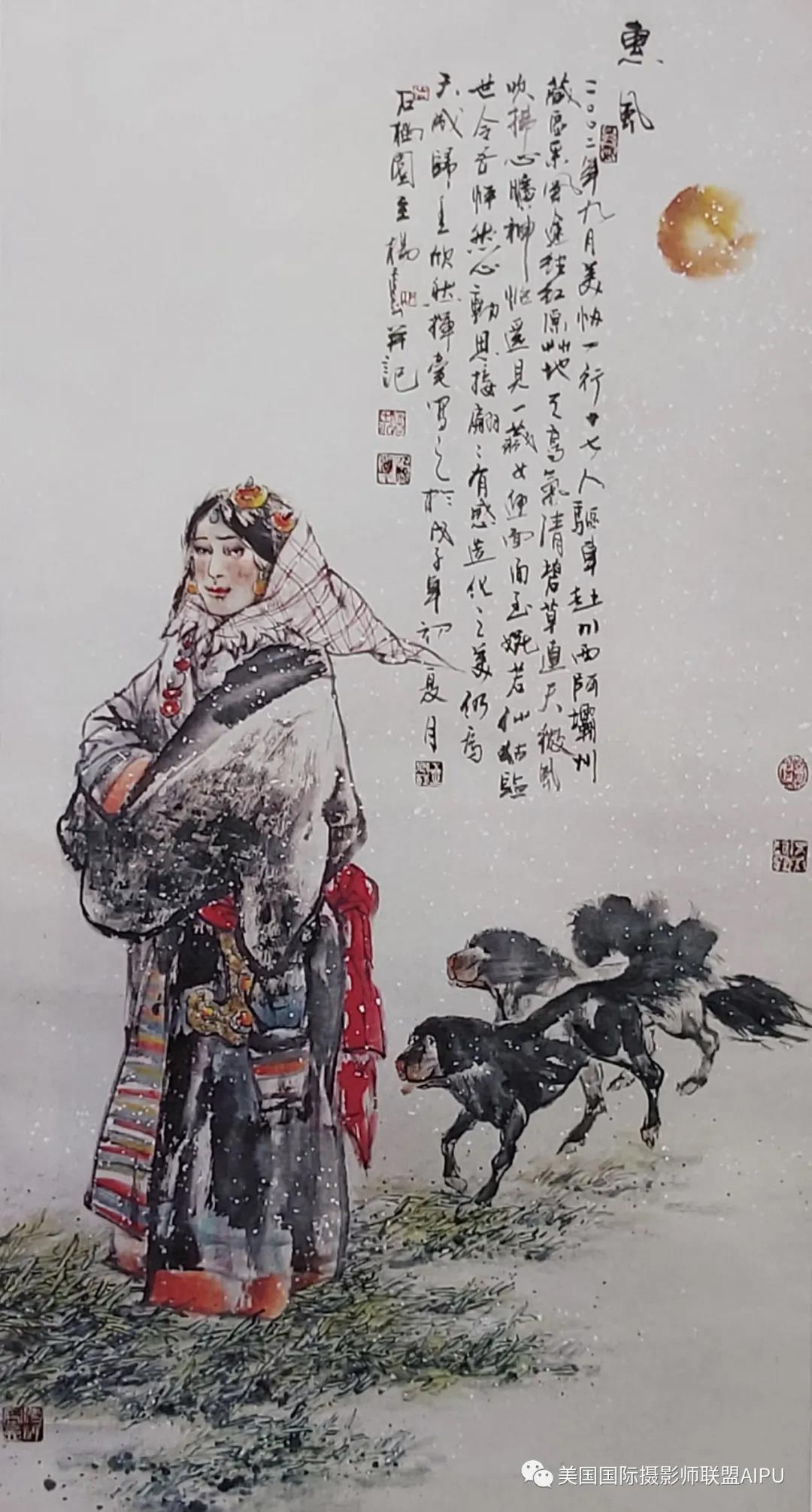
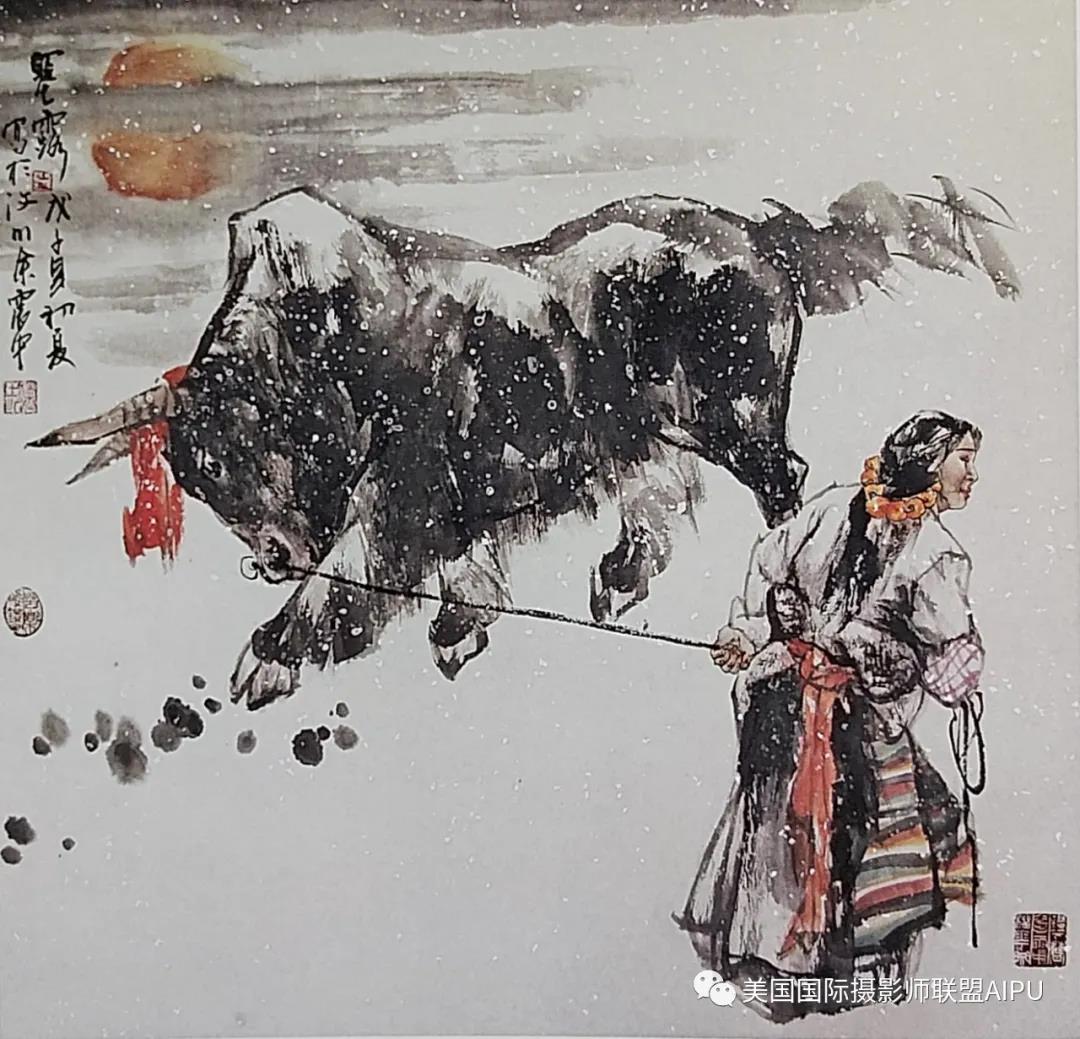
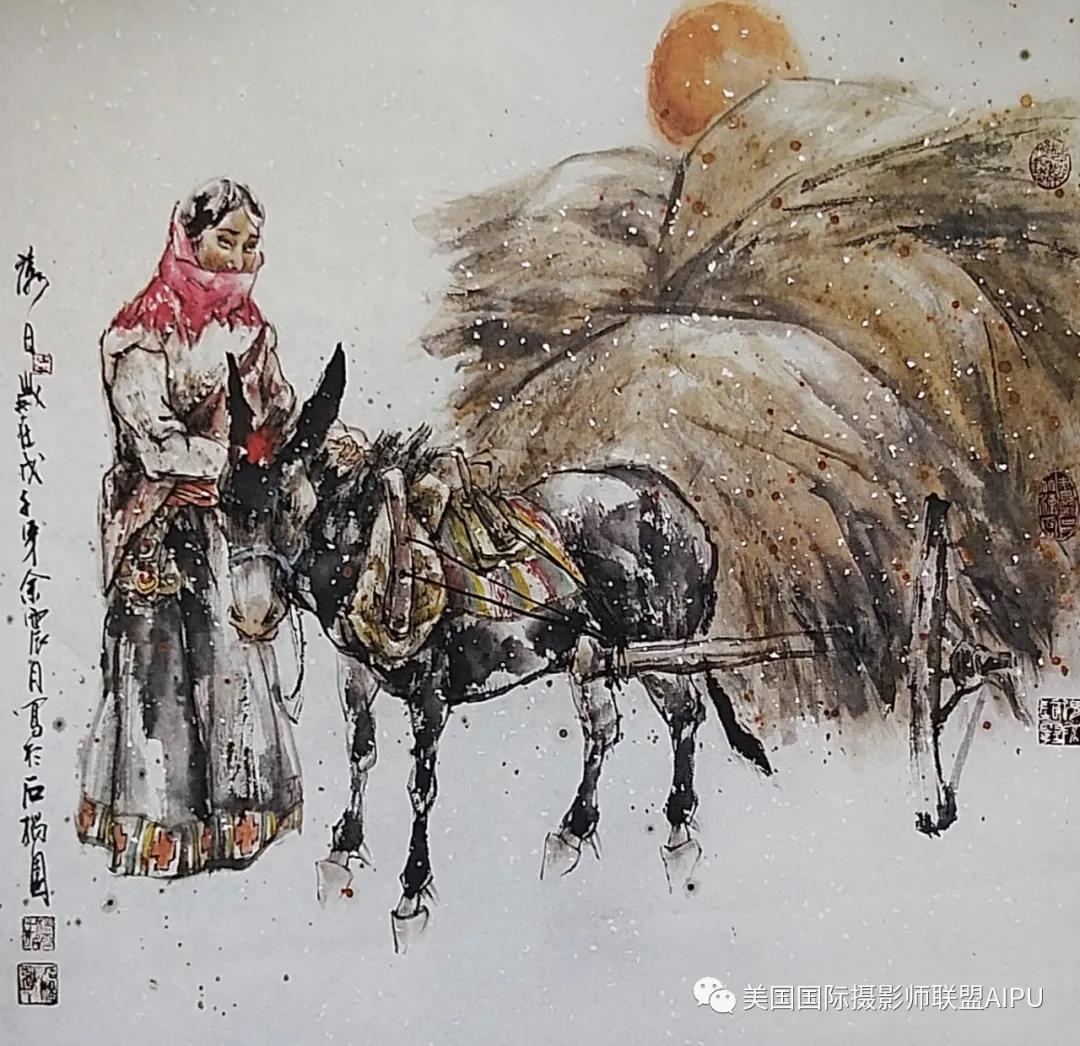
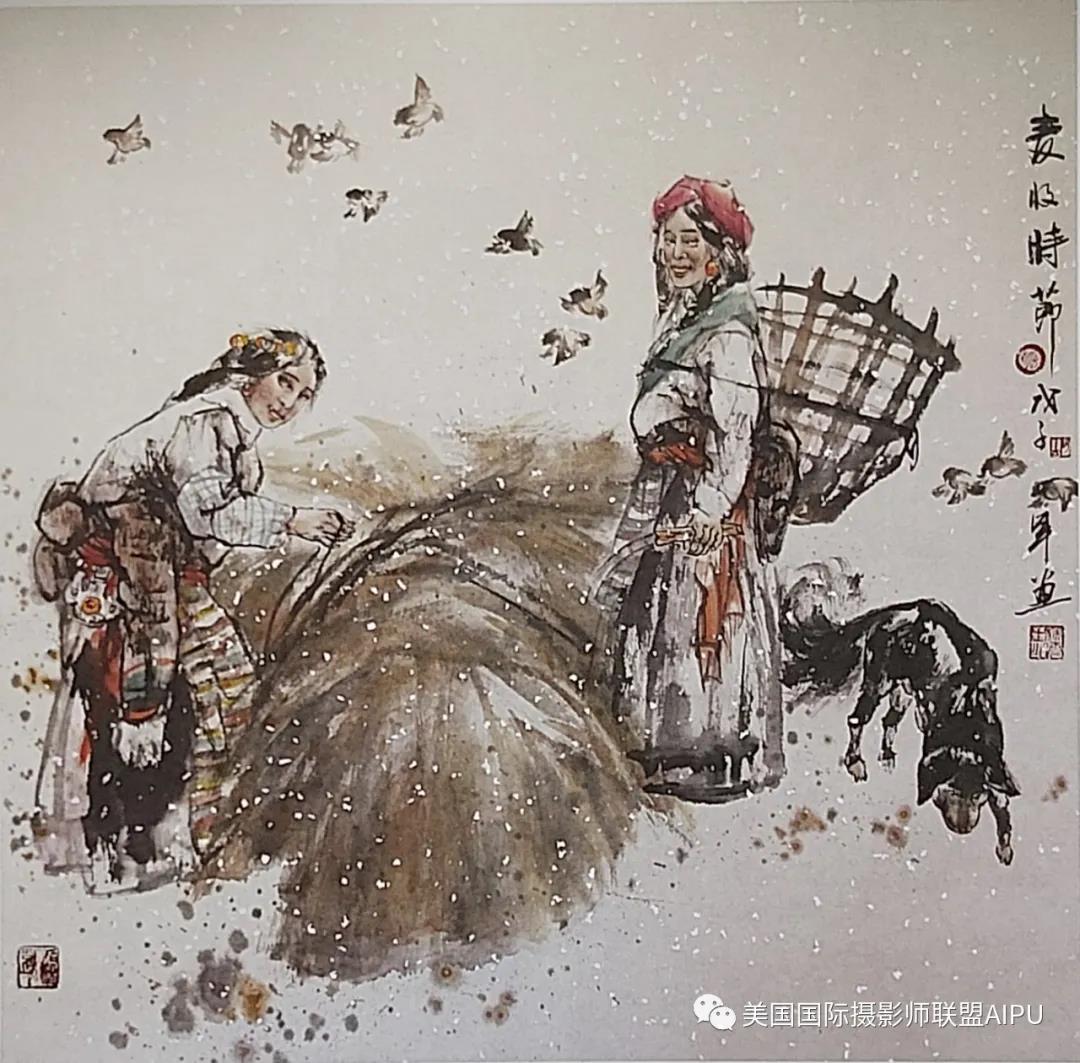
欢迎收藏作品/ Welcome to Collect Works
如需转载本文到其它网站,请与我们联系。
END
整理/ Organize:Lisa
编译/Celine & Louis
审核/ Cindy & Mary
制作/ Produce:AIPU
AIPU工作微信 /Work WeChat:AIPU-2015
欢迎加入美国国际摄影师联盟会员
Welcome to join the membership of the American International Photographer Union (AIPU)


